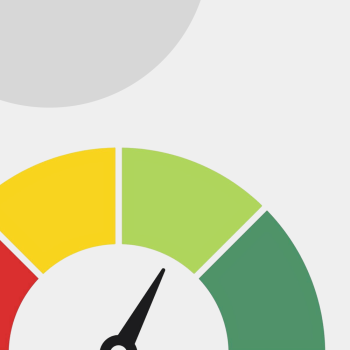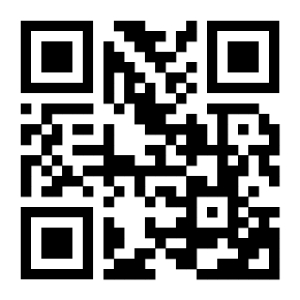
- President of UOKiK Tomasz Chróstny launched a preliminary investigation to determine whether competition in the banking sector may have been restricted.
- UOKiK is reviewing the rules for assessing consumer creditworthiness and their impact on lending conditions.
Banks and other lenders assess the creditworthiness of every consumer seeking a suitable loan. The assessment is based, among others, on the scoring model of the Credit Information Bureau (BIK). The BIK system determines creditworthiness not only based on loan and credit repayment history, current debt, and the number and type of financial obligations but also on the frequency and number of credit inquiries. This means that credit inquiries alone can significantly impact consumer’s creditworthiness score, regardless of whether they receive a loan decision. At the same time, consumers do not have reliable information about the time needed for the scoring model to stop taking into account previous inquiries in the calculation of a borrower’s credit score.
– For several months, we have been analysing the principles and conditions of credit scoring, as we have suspicions that the BIK scoring model may restrict competition between banks. A rational consumer looking for the best conditions for, say, a mortgage loan submits credit inquiries to several banks. However, consumers are often unaware that each additional inquiry can lower their credit score, regardless of whether they have already received a loan decision from one of the banks. Comparing this situation to other markets, it would be as if merely requesting an insurance quote from several insurance companies at the same time or inquiring about a phone plan from several telecom companies led to an exchange of information about the customer and deterioration of the terms of subsequent offers provided to them – explains President of UOKiK Tomasz Chróstny.
Therefore, if a consumer submits applications to several or even a dozen financial institutions to compare their offers and choose the best one, they risk a significant drop in their BIK score, which in turn negatively affects their creditworthiness across the entire banking sector. Such a mechanism may in itself be anti-competitive, as it discourages or even penalises informed consumers seeking the best offers while allowing businesses to exchange information about the fact that the consumer has made inquiries with other lenders over a given period. The current model may therefore discriminate against particularly active customers who wish to explore and compare financial product offers from several banks and choose the one that is most advantageous for them.
This issue can be particularly problematic for consumers applying for a mortgage, as they usually have to obtain one within a relatively short period of time due to the limited timeframe for reserving a property. Given the nature of the product, it is understandable that a rational consumer would seek multiple binding offers to ensure they eventually take out a loan on the most favourable financial terms. Therefore, a rational consumer may be penalised for their approach by the BIK scoring model, which lowers their credit score, as a result of which they may face worse loan conditions or even be denied mortgage altogether.
– The mechanisms we are analysing may have been in place for years and could have tangible consequences. For example, one consumer who filed a complaint with UOKiK wanted to review consolidation loan offers from various banks. As a result of inquiries sent to BIK by several banks within a month, their credit score dropped significantly. Each subsequent inquiry led to further reductions in the score, despite the fact that the consumer had not been refused mortgage at any bank and their credit history showed no overdue payments. Such an approach to creditworthiness assessment is difficult to explain and may serve other purposes than merely assessing the consumer’s financial standing, adds President of UOKiK Tomasz Chróstny.
As part of the ongoing investigation, UOKiK is examining whether such a scoring model constitutes a competition-restricting practice. Specifically, the Office is assessing whether it facilitates coordination and anti-competitive exchange of information about customer inquiries between financial market participants. The issue may affect both consumer and mortgage loans.
The preliminary investigation is being conducted in the case and not against any specific entities. If suspicions are confirmed, the President of the Office of Competition and Consumer Protection (UOKiK) may institute antitrust proceedings, which may result in a sanction of up to 10% of turnover for engaging in competition-restricting practices.
Severe penalties can be avoided through a leniency programme. It offers businesses involved in an illegal agreement and managers responsible for collusion an opportunity to reduce a sanction or, in some cases, avoid it altogether. It is intended for those who agree to cooperate with the President of UOKiK as a “crown witness” and provide evidence or information regarding the existence of a prohibited agreement. We encourage those interested in the leniency scheme to contact the Office at a dedicated phone number: 22 55 60 555. UOKiK staff will answer any questions about the leniency programme, including anonymous ones.
We also remind you that we operate a programme to obtain information from anonymous whistleblowers. Do you wish to inform UOKiK about competition-restricting practices? Visit https://uokik.whiblo.pl/ or scan the QR code below and use the simple form. The system we use guarantees complete anonymity, including from UOKiK itself.
Information for the media
| +48 603 124 154 | |
| biuroprasowe@uokik.gov.pl | |
 | pl. Powstańców Warszawy 1 00-950 Warszawa |



















